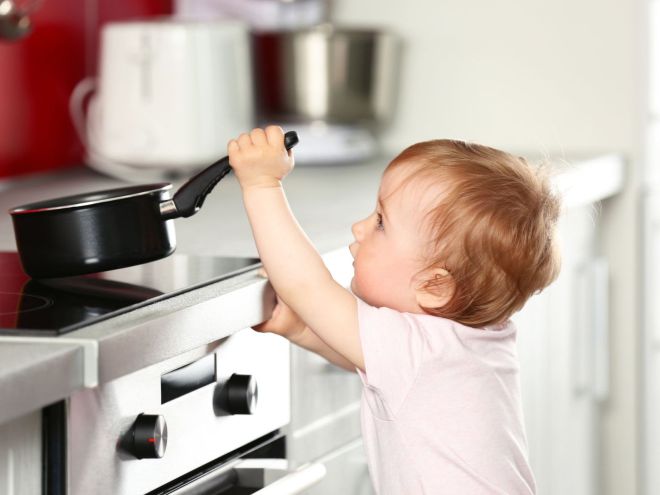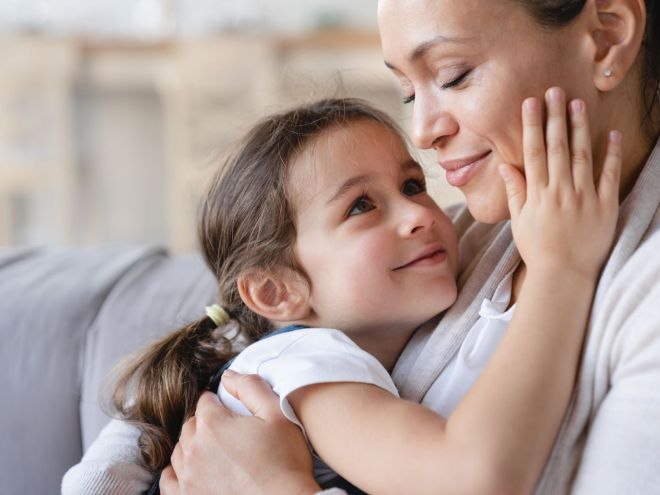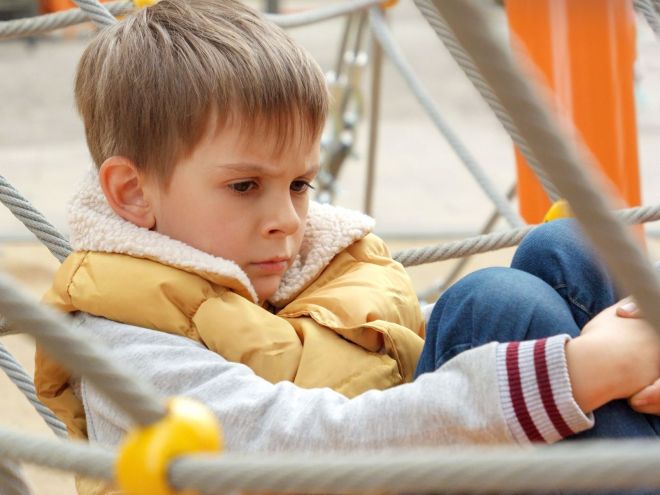Why do children lie?



The painful secret they’ll fib to hide instead of tell you
I’m sitting in the waiting room at the endocrinologist’s office. Nobody’s waiting for their gestational diabetes test today, though. That’s on Wednesdays. The waiting room is full of sad faces. It might not seem like this story is about children …
“I guess it’s my turn now?” asks a lady in a sky-blue coat.
“That’s right, you’re next. Into the lion’s den, as they say.”
“Yep. Here we go again. I’m going to get yelled at like a little kid.”
The room gets a little more tense.
“I’m not even going to mention that I forgot to write down my numbers for two days. Then I’d really be in for it. I’ll say I forgot my notebook at home. I can’t tell the doctor I had a slice of cake. It was my sister’s birthday, so I couldn’t help myself.”
“All right,” says the nurse. “You can go in now.”
Every face in the waiting room goes still.
The atmosphere is so thick you could cut it with a knife.
Fear hangs in the air.
Before you dismiss this story as irrelevant because your doctor isn’t like that at all and if a doctor yelled at you then you’d find a new one, keep reading. The point here isn’t about the specifics of the situation, because those might be different in different places, but about how we as adults relate to children. In a few lines you’ll see what we mean.
“All right. You can go in now.”
The lady who “forgot” her notebook gives a conspiratorial wink to the patient next to her and gets up to go into the office. Into the lion’s den.
They treat you like a little kid here. You have to lie
The door isn’t padded like at the pediatrician’s office,
so you can hear voices coming clearly out of the lion’s den:
“Up on the scale now. Gained four pounds? … Are you sticking to your diet? … What’s that, forgot your notebook??”
In a minute the door opens again and the patient comes out, face crumpling up like a tissue.
“That was bad,” she sighs, wiping sweat from her forehead.
“They treat you like a little kid here. You have to lie and they yell at you anyway. I hate coming here so much.”
“Tell me about it,” sigh at least half the people in the waiting room.
Then the nurse calls out my name.
I go inside, apprehensive of what is coming next. I don’t want to go, and my stomach is clenching in fear. It’s worse than an exam in high school. Isn’t that silly? I’m an adult.
“All right, up on the scale now.”
The usual.
“You’re doing well. No need for medication.”
Whew.
It was like my main goal was not to get yelled at
Forget about my actual health.
I look over and the doctor actually has tears in her eyes.
“Finally someone who didn’t lie to me. No made-up stories about ‘I forgot’ or ‘I didn’t know’ or ‘I didn’t eat that’ …” she says.
“I’m so fed up with the lying,” she adds, “but I can’t come out and tell a patient, ‘Hey, I know you’re lying’.”
So we’re just going to keep lying to each other forever
I feel this strange sadness for everybody involved. I can’t say I ate what I wasn’t supposed to, because I’d get in trouble. I can’t say I can tell you’re lying, because it’s not appropriate.
We’re all looking for ways around telling the truth. To the doctor. To the patient. To our mother. To our kids. To our neighbor. To our boss. To that persistent real estate agent … (Who are you avoiding telling the truth to?)
Yes, we’re like little kids. Not long ago I called to cancel an eye appointment at the last minute and said I was sick. I didn’t want to admit I had overslept. And why exactly? So they wouldn’t get mad at me?
Quite honestly … it was to avoid feeling like I’d failed. So it wouldn’t be my fault. It wasn’t me. It was the virus.
It comes right back to me like an echo
“It wasn’t me, Mommy,” I hear from my kids. Then I find bits of orange shoved behind the dresser. “I ate them, Mommy. For real.” Why is the child lying right to my face? Where does she get it from? We don’t tell lies in this house.
But she heard me telling the person on the phone I was sick. She probably felt my childish fear, too. The fear of saying honestly what happened and losing my reputation as a competent adult.
She absorbed it all like a little sponge. It made me feel ashamed of myself.
“You’re afraid to tell the truth, Mommy?” she asked.
“I’m embarrassed about it.”
“But you’re not embarrassed to lie?”
I am, sweet pea. But the fear of telling the truth is stronger sometimes. Even though I’m a mom with my own kids, a respectable matron of over 30 (haha).
I keep wondering where that fear comes from
At what point did we figure it was better to make something up rather than tell the truth? At what point did we lose the ability to tell someone the truth without every muscle in our body clenched?
Where did that fear come from, the fear that has us making up stories and sweating while looking for roundabout ways to say (or avoid saying, in case someone gets mad at us) basic things like,
“I want to go home.”
“I don’t feel like going out for coffee today.”
“Sorry, I overslept.”
“I don’t want to come here anymore, doctor.”
I’m thinking about it …
And suddenly I know
I’m sitting in my bedroom, I’m about 15, and I’m scared. I burned a hole in the blanket when I was secretly trying out a cigarette yesterday. I have to get rid of it somehow so Mom doesn’t find out. Then I’d really be in for it. I can’t tell her I was smoking.
Suddenly the door opens and Mom’s home.
“Hi, what are you doing sitting here all sad?”
“Hi, Mom, I’m fine.”
“What’s the deal with you? You’re awfully quiet.”
“Nothing, Mom.”
I’m actually just too scared to tell you the truth
Because I burned a hole in the blanket since I wanted to try smoking a cigarette, you know, just to try it out. I hung up a blanket to hide what I was doing, but when I turned around to see if anyone was coming, I bumped the cigarette into it and now there’s a hole.
I’d love to tell you the whole story, because I know you’re going to find out anyway, but I’m scared you’ll yell at me. Scared you’ll say, “Are you kidding me? I’m so disappointed in you. For shame.”
Just like the time when I was 10 and I ate all the pudding before you got home from work. It was so good and I just kept eating until the bowl was empty. It didn’t even occur to me that I should leave something for the rest of the family. I just plain forgot. (Maybe I should have hidden the bowl somewhere.) And I disappointed you.
It wasn’t the first time, either.
When I was 5, one morning I cried and cried because I didn’t want to go to school. The day before, the boys at school were playing some pretend game and they talked about chopping off someone’s head with an ax. I thought about it that morning and got scared. So I started crying. When you asked me what was wrong, I told you I was afraid of the ax.
“Oh, for goodness’ sake, what are you talking about? You’re a big girl now. I thought I could rely on you to get ready when we’re in a hurry. Enough tears and let’s get going so we aren’t late.”
I’m sorry you can’t rely on me, Mama. I’m trying, really I am. But I keep messing up. I guess it started back when I was 3 and trying to pull a book out of my little brother’s hands. He was just a baby and grabbed it from me first. It was my favorite and I didn’t want to let him have it. And you told me,
“Just let him play with it for a minute. He’s just a baby and he doesn’t understand it’s yours.”
But I didn’t want to, so I went to grab it from him again, and this time it tore.
“Now look what you’ve gone and done. Good grief. I thought you had more sense than that.” You had that sad look in your eyes again.
You were relying on me and I disappointed you.
So now I’m 15 and lying to you, Mom. Sorry. I just don’t want you to get mad at me again. I don’t want you to be sad about how I messed up again.
To tell you the truth, I’m not 15 anymore. I’m almost 40 and yesterday I lied to the doctor about being sick. Even though really I just overslept. When I imagined the nurse scolding me over the phone about the missed appointment, I couldn’t bring myself to tell the truth. I didn’t want to admit I’m just that irresponsible. Silly, isn’t it? Such a small thing. I did the same with my friend, saying I had a headache when really I just didn’t feel like going out for coffee.
Did you know the diabetes doctor’s eyes are just like yours, Mom? Tired.
It must be hard dealing with patients all the time. They’re unreliable, don’t keep their word, and lie right to your face.
Now I’m a mom myself and I’m doing the same with my kids
I’ve heard myself telling my daughter, “Oh, come on, are you telling me you can’t buy a ticket on your own?” I wanted her to be more independent. I didn’t believe her when she told me that the last time she went to the ticket desk, the cashier made an annoyed face and now she’s scared to go back.
The other day I told my son, “Get that thumb out of your mouth! You’re a big kid now.” Did he hear the unspoken message “I’m disappointed in you”? Oh no.
Will he tell a lie in the doctor’s office one day? Or to his boss? What do you think?
To be quite honest, I’m not comfortable with this at all.
I’m going to go apologize to them today. I want them to know that they didn’t disappoint me, even if it might have sounded like it. That it’s a learned response on my part. That my parents said the same to me. Because when I was a child, that’s how adults talked to children.
Maybe I’ll ask them to remind me next time I slip up and say something like that: “Mom, that hurts.” Maybe they can help me remember how it hurt me when I was little, too.
And if they don’t understand me?
I have to at least try, after everything I realized today. They’re such sweet kids. I think they’ll help me if they can.
That evening I sat down with them to talk
It was hard. My older one especially didn’t really want to talk about it at first, but the younger one saved the day. I don’t know what came over him, but he threw his arms around us both as if to say, “Everything’s going to be okay.” After kicking myself half the day over my various failings as a person and a parent, I suddenly felt a spark of hope that maybe it really would.
Today my daughter came in and told me,
“Mom, I didn’t eat the school lunch today. They had those horrible beans again and I can never make myself eat those. At first, I didn’t want to tell you about it, but I’m glad you know.”
Instead of an automatic response of, “What? Why on earth not?” I felt tears well up in my eyes.
“You’re crying, Mom? About the beans?”
“No, baby, I’m just happy that you told me the truth.”
Talking with the kids was really worth it
If you’re upset with yourself for saying something to your children you maybe shouldn’t have said, try talking to them about it. Or maybe you’re like me and found out your child is lying to you, and now you’re wondering what to do.
One conversation isn’t going to fix everything, of course. My endocrinologist’s office could probably use some sensitivity training, but they did help me put the pieces together. I realized how important it is to talk openly with my kids about my own mistakes and shortcomings. And to apologize to them when I slip up and say something dumb or hurtful. It helps.
I had to work up some courage and start making changes in myself, though. A lot has happened since that first conversation. It’s like I’ve opened up more to my kids, and them to me as well.
Otherwise, I might never have found out that my son was worried he might never grow up because I once snapped in irritation, “I guess you’re still a baby then.”
Or that my daughter once secretly packed a bag and planned to go to Grandma’s house because I said in frustration, “When are you finally going to get some common sense? I am so tired of you.” She didn’t want to add to my troubles.
Pretty heavy stuff, right? But I’m glad I know now.


